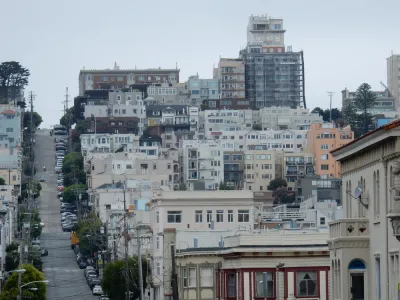A San Francisco politician is pushing for a vacant home tax to appear on the November ballot.

San Francisco Supervisor Dean Preston is pushing for a local ballot measure that could potentially add a vacancy tax in the notoriously expensive city.
According to a paywalled article by J.D. Morris for the San Francisco Chronicle, a vacant homes tax would create a disincentive for landlords and property owners that leave housing units unoccupied. A report published by the San Francisco Budget and Legislative Analyst at the end of January estimated that the city had more than 40,000 vacant homes as of 2019. The news about the potential for the ballot initiative follows shortly after a proposal by San Francisco Mayor London Breed to streamline the development approval process, another approach for addressing the lack of housing affordability in the city, died in the Board of Supervisors.
"The tax for homes would apply to the owners of buildings with three or more units when at least one of them has been unoccupied for more than six months in one year," reports Morris. "Single-family homes and two-unit buildings would not pay the tax, nor would primary residences, leased properties or affordable housing projects. Units that become vacant because of construction, the death of an owner or natural disaster would have more time than other kinds of homes before being subject to the tax."
Preston informed Morris that that the new tax would spend half of its revenue on rental subsidies for seniors and low-income families, "while the other half would support a new program to help the city buy empty buildings and convert them into affordable housing."
Vacancy taxes are a hot button item in the contemporary debate about how to address the lack of affordable housing in expensive cities. Vancouver, British Columbia famously implemented a vacancy tax in 2017, raising the tax multiple times since then. Stateside, Washington, D.C. and Oakland, California have implemented vacancy taxes.
While development opponents (of which Supervisor Preston is an infamous example in a city infamous for opposing developments), point to vacant units as a solution for affordable housing and homelessness, development proponents (aka YIMBYs) point to the historically low vacancy rates of the current housing market as a sign of a supply-demand imbalance that will limit the effectiveness of vacancy taxes.
An August 2021 substack article by Darrell Owens, a pro-housing development activist, detailed the ongoing vacant housing debate.
FULL STORY: Vacant-home tax could appear on San Francisco’s November ballot

Analysis: Cybertruck Fatality Rate Far Exceeds That of Ford Pinto
The Tesla Cybertruck was recalled seven times last year.

National Parks Layoffs Will Cause Communities to Lose Billions
Thousands of essential park workers were laid off this week, just before the busy spring break season.

Retro-silient?: America’s First “Eco-burb,” The Woodlands Turns 50
A master-planned community north of Houston offers lessons on green infrastructure and resilient design, but falls short of its founder’s lofty affordability and walkability goals.

Test News Post 1
This is a summary

Analysis: Cybertruck Fatality Rate Far Exceeds That of Ford Pinto
The Tesla Cybertruck was recalled seven times last year.

Test News Headline 46
Test for the image on the front page.
Urban Design for Planners 1: Software Tools
This six-course series explores essential urban design concepts using open source software and equips planners with the tools they need to participate fully in the urban design process.
Planning for Universal Design
Learn the tools for implementing Universal Design in planning regulations.
EMC Planning Group, Inc.
Planetizen
Planetizen
Mpact (formerly Rail~Volution)
Great Falls Development Authority, Inc.
HUDs Office of Policy Development and Research
NYU Wagner Graduate School of Public Service




























